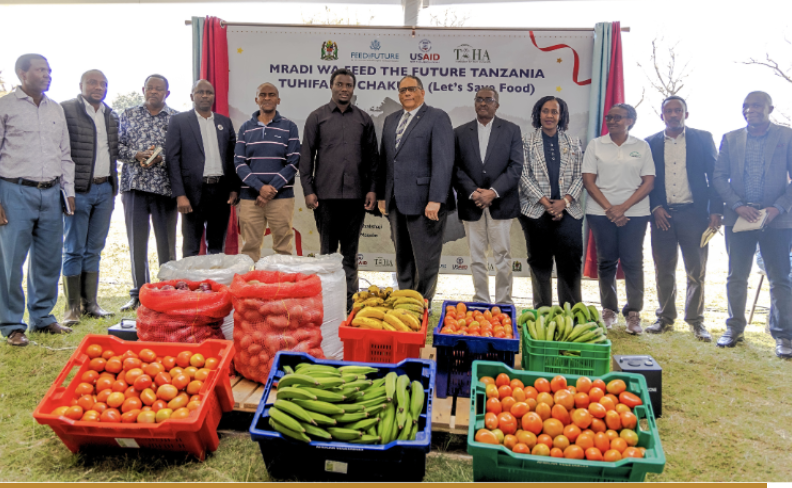Kilimanjaro, Tanzania – September 26, 2024: In a major effort to strengthen food security in Tanzania, the U.S. Agency for International Development (USAID) has launched the Feed the Future Tanzania Tuhifadhi Chakula (Let’s Save Food) project. This five-year, 60 billion Tanzanian Shillings ($24 million) initiative is focused on reducing post-harvest losses in Tanzania’s key horticulture and cereal value chains. The project is being implemented in partnership with the Tanzania Horticulture Association (TAHA) and the SAGCOT Center.
Farmers, traders, and processors gathered to showcase the collective actions underway to tackle food loss and waste. Speaking at the event, U.S. Ambassador Michael Battle emphasized the project’s ambitious goal: to cut post-harvest losses by 50% in the program’s targeted areas. “These partnerships will improve food security, create jobs, and generate export opportunities, especially for women and youth,” Battle said. The initiative is also expected to attract up to $20 million in investments for food processing and innovative uses of agricultural waste.
Since the project commenced in August 2023, it has already had a noticeable impact, particularly in the Kilimanjaro banana market, where 216,000 metric tons of bananas reached buyers, reducing post-harvest losses and generating nearly 400 million Tanzanian Shillings in income for local farmers.
The Feed the Future Tanzania Tuhifadhi Chakula initiative will engage more than 930,000 stakeholders across the agricultural value chain, including farmers, traders, processors, and financial institutions. The project will operate across ten regions in Tanzania: Morogoro, Njombe, Pwani, Tanga, Zanzibar, Arusha, Dar es Salaam, Dodoma, and Kilimanjaro, running until July 2028.
The launch coincides with a broader U.S. effort to combat food insecurity in the region, following the September 19, 2024 announcement by Jake Sullivan, U.S. Assistant to the President for National Security Affairs, and Samantha Power, USAID Administrator. They committed over $80 million in new Feed the Future funds for Southern and Eastern Africa, with $13 million allocated to Tanzania.
This initiative is part of a regional strategy to boost agricultural productivity, reduce hunger, and create economic opportunities by leveraging fertile land and progressive farming practices. Research indicates that improving cereal yields by 25% in Eastern and Southern Africa could generate $24 billion in agricultural production by 2030, helping to reduce hunger for 22 million people.
